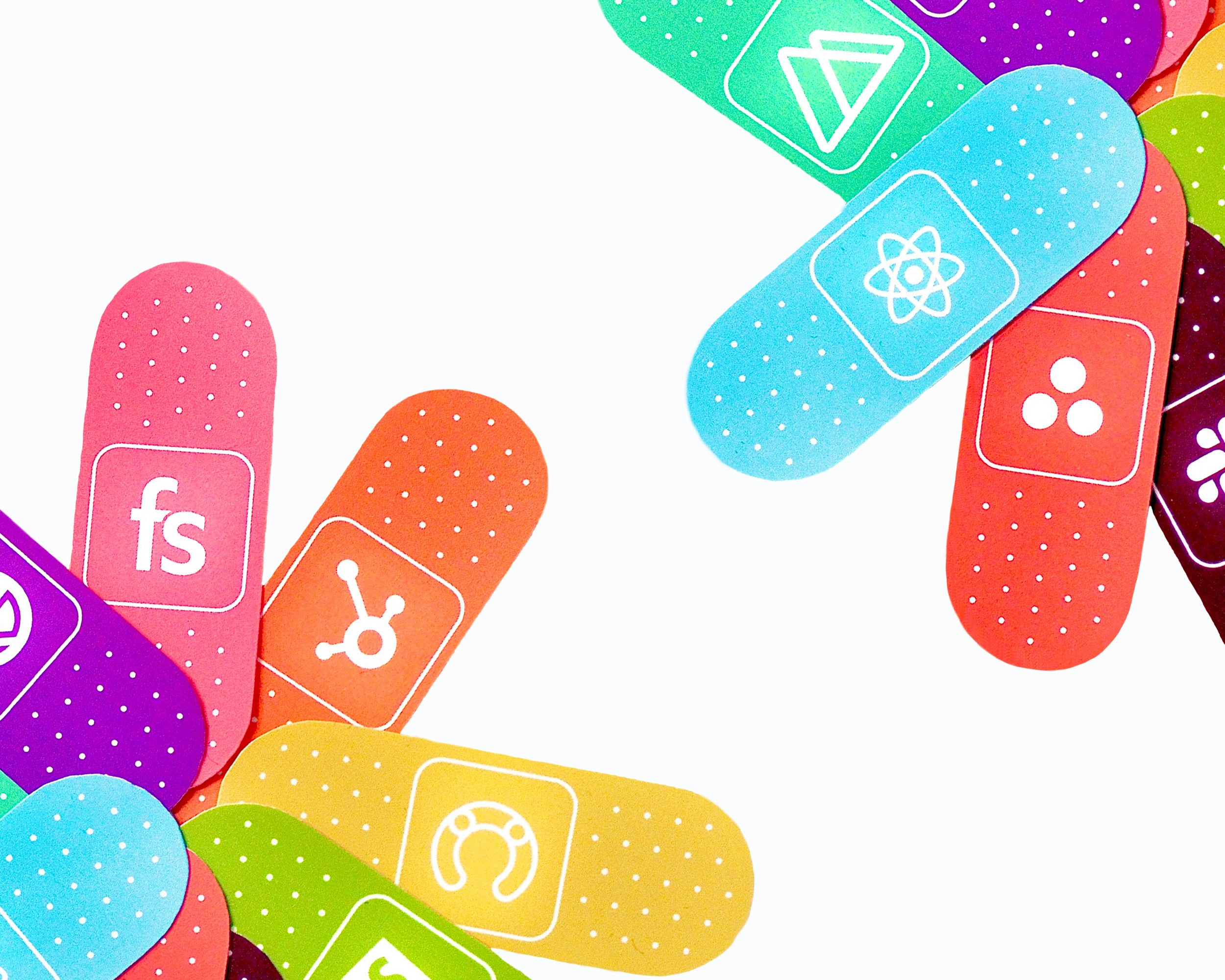Are you overwhelmed by the vast array of Software as a Service (SaaS) applications available on the market? As an expert in Intelligent Business Applications, I understand the struggles of choosing the right SaaS software for your business. In this comprehensive guide, I will provide you with clear instructions and valuable insights on how to navigate through the sea of options and select the best SaaS applications for your specific needs. We will delve into the world of AI in SaaS, exploring its benefits and limitations, and I’ll share true short stories and opinions that will spark debates and help you make informed decisions. Get ready to discover the ultimate guide to choosing the best SaaS applications and take your business to new heights.
What is AI in SaaS?
AI, also known as Artificial Intelligence, is a groundbreaking technology that has revolutionized various industries, including the field of Software as a Service (SaaS). In simple terms, AI refers to the ability of computer systems or software applications to simulate human intelligence and perform tasks that would typically require human involvement.
In the context of SaaS, AI is integrated into software applications to enhance their capabilities and provide intelligent solutions to businesses. These AI-powered SaaS applications can automate processes, analyze data, make predictions, and even engage in natural language interactions. The integration of AI in SaaS has opened up new possibilities for businesses to streamline their operations, improve decision-making, and deliver personalized experiences to their customers.
Definition of AI in SaaS
AI in SaaS encompasses the use of Artificial Intelligence algorithms and technologies within Software as a Service applications. It involves leveraging machine learning, natural language processing, computer vision, and predictive analytics to enhance the functionality and efficiency of SaaS solutions.
By harnessing the power of AI, SaaS applications can learn from data, adapt to user behavior, and continuously improve their performance. From automated customer support chatbots to predictive sales forecasting models, AI in SaaS offers a wide range of capabilities that can drive growth and innovation for businesses.
The benefits of AI in SaaS
Integrating AI into SaaS applications can bring numerous benefits to businesses. Here are some key advantages:
-
Enhanced Efficiency: AI-powered SaaS applications can automate labor-intensive tasks, increasing operational efficiency and reducing manual errors. This enables businesses to save time and resources, allowing employees to focus on more strategic activities.
-
Improved Decision-making: With advanced data analytics and predictive capabilities, AI in SaaS applications can provide valuable insights and recommendations. This empowers businesses to make data-driven decisions, identify trends, and anticipate customer needs.
-
Personalized Experiences: AI can analyze vast amounts of data to understand individual preferences and behaviors. This enables SaaS applications to deliver personalized user experiences, tailored recommendations, and targeted marketing campaigns.
-
Cost Savings: AI-powered automation can significantly reduce costs by eliminating the need for manual intervention and streamlining processes. Businesses can optimize resource allocation and achieve greater efficiency with AI in SaaS.
-
Scalability and Flexibility: AI-powered SaaS applications are designed to scale seamlessly as businesses grow. Whether it’s handling increasing data volumes or accommodating a growing user base, AI can adapt and deliver consistent performance.
In summary, AI in SaaS brings immense value to businesses by improving efficiency, decision-making, personalization, cost savings, and scalability. By harnessing the power of AI, businesses can stay ahead of the competition and unlock new opportunities for growth.
Key Considerations When Choosing AI-Powered SaaS Applications
When selecting AI-powered SaaS applications for your business, it’s essential to consider various factors to ensure you choose the right solution. Here are some key considerations to keep in mind:
Identify your business needs
Before diving into the world of AI-powered SaaS applications, it’s crucial to identify and prioritize your specific business needs. Are you looking for a solution to automate repetitive tasks, analyze customer data, or enhance decision-making? By clearly defining your requirements, you can narrow down your search and focus on solutions that align with your objectives.
Evaluate the AI capabilities
Not all AI-powered SaaS applications are created equal. It’s important to evaluate the AI capabilities of each solution you are considering. Look for applications that leverage advanced machine learning algorithms, natural language processing, computer vision, or predictive analytics, depending on your specific requirements. Assess the level of automation, accuracy of predictions, and the ability to learn and adapt over time.
Consider ease of integration
When implementing AI-powered SaaS applications, seamless integration with your existing systems is crucial. Evaluate the compatibility of the solution with your current software landscape and consider the ease of integration. Look for applications that provide robust APIs (Application Programming Interfaces) to ensure smooth data exchange and interoperability.
Assess the user interface and experience
A user-friendly interface and positive user experience are essential for successful deployment and adoption of AI-powered SaaS applications. Evaluate the usability, intuitiveness, and overall design of the application. Consider factors such as ease of navigation, visual aesthetics, and customization options to ensure the application aligns with your users’ needs and preferences.
Analyze the data security measures
Data security is a critical consideration when dealing with AI-powered SaaS applications, as they often handle sensitive business information. Assess the data security measures implemented by the solution provider. Look for industry-standard encryption protocols, compliance with data privacy regulations, and robust data backup and disaster recovery plans. Ensure that your data will be safeguarded against unauthorized access or breaches.
By carefully considering these key factors, you can make an informed decision when choosing AI-powered SaaS applications for your business. Taking the time to evaluate your needs, assess capabilities, consider compatibility, prioritize user experience, and prioritize data security will help you select the solution that best meets your requirements.
Understanding the Different Types of AI-Powered SaaS Applications
AI-powered SaaS applications come in various forms, each catering to different business needs and objectives. Understanding the different types can help you choose the right solution for your specific requirements. Here are some common types of AI-powered SaaS applications:
Machine Learning Applications
Machine learning applications are designed to analyze data, identify patterns or trends, and make predictions or intelligent recommendations. They can automate tasks, optimize processes, and provide valuable insights. A classic example of a machine learning application is an AI-powered recommendation engine used by streaming platforms to suggest personalized content to users based on their viewing history and preferences.
Natural Language Processing Applications
Natural Language Processing (NLP) applications enable computers to understand, interpret, and respond to human language. These applications can automate customer support through chatbots, analyze text data, and facilitate voice interactions. For example, an AI-powered chatbot can understand and respond to customer queries, providing instant assistance and improving customer satisfaction.
Computer Vision Applications
Computer Vision applications leverage AI algorithms to analyze and interpret visual data. They can process images or videos, identify objects, extract information, and perform tasks such as facial recognition or object detection. Computer vision applications have a wide range of applications, from automated quality control in manufacturing to facial recognition for enhanced security systems.
Predictive Analytics Applications
Predictive analytics applications use AI algorithms to analyze historical data and make predictions about future events or outcomes. These applications can help businesses forecast market trends, optimize inventory management, or identify potential risks. For example, a predictive analytics application can analyze customer data to identify patterns and predict customer churn, enabling businesses to take proactive measures to retain customers.
Virtual Assistant Applications
Virtual assistant applications simulate human-like interactions to provide support, assistance, and perform tasks. They can understand natural language, respond to queries, and even perform specific actions. Virtual assistants are commonly used for tasks such as scheduling appointments, setting reminders, or managing email. They offer a convenient and efficient way to automate routine tasks and enhance productivity.
By understanding the different types of AI-powered SaaS applications, you can identify the specific functionalities and capabilities that align with your business needs. Whether you require machine learning for data analysis, NLP for customer support, computer vision for visual data processing, predictive analytics for forecasting, or virtual assistants for task automation, choosing the right type of application is crucial for achieving optimal results.
Determining Pricing Models and Subscription Plans
When selecting AI-Powered SaaS applications, understanding the pricing models and subscription plans is essential to ensure the solution fits within your budget and offers the value you seek. Here are some common pricing models:
Subscription-based pricing
Many AI-powered SaaS applications offer subscription-based pricing models, where users pay a recurring fee based on the usage or the features included in the subscription plan. These plans often have tiered pricing, allowing businesses to choose the level of functionality that suits their needs. Subscription-based pricing offers flexibility and predictable costs, making it popular among businesses of all sizes.
Pay-per-use pricing
Some AI-powered SaaS applications offer pay-per-use pricing models, where businesses only pay for the actual usage of the application or service. This is particularly beneficial for businesses with fluctuating demands or those who want to ensure cost optimization. Pay-per-use pricing allows businesses to scale their usage up or down based on their requirements, providing cost efficiency.
Freemium models
Freemium models are commonly used in the SaaS industry, including AI-powered applications. These models offer both free and premium versions of the software, with limited features available in the free version. Businesses can start with the free version to evaluate the application’s functionality and performance before deciding to upgrade to a premium plan. Freemium models are popular because they allow users to try the application before committing to a paid subscription.
Custom pricing options
In some cases, AI-powered SaaS applications may offer custom pricing options, tailored to the specific needs and requirements of a business. This can be beneficial for businesses with unique demands or those who require highly customized solutions. Custom pricing options allow businesses to negotiate pricing based on their specific usage, features, or integration requirements.
By understanding the different pricing models and subscription plans, you can choose the most suitable option that aligns with your budget and business goals. Consider factors such as long-term cost implications, scalability, and the value delivered by the application when evaluating the pricing options.
Examining the Reputation and Reliability of SaaS Providers
When choosing AI-powered SaaS applications, it’s crucial to examine the reputation and reliability of the SaaS providers. Here are some factors to consider:
Research customer reviews and testimonials
One of the best ways to gauge the reputation of a SaaS provider is by researching customer reviews and testimonials. Look for feedback from businesses in similar industries or with similar requirements. Pay attention to the overall satisfaction, quality of support, and reliability of the applications. Customer reviews can provide valuable insights into the provider’s track record and the experiences of other users.
Explore case studies and success stories
Case studies and success stories can give you a deeper understanding of how the AI-powered SaaS applications have benefitted other businesses. Look for case studies that showcase the real-world application of the solution and the outcomes achieved. This can give you confidence in the provider’s ability to deliver on their promises and provide tangible results.
Assess the company’s financial stability
The financial stability of a SaaS provider is an essential consideration when choosing an AI-powered SaaS application. Review the financial statements, funding, or investor information of the provider to gauge their stability and scalability. A financially stable provider is more likely to invest in research and development, customer support, and continuous improvement of their solutions.
Evaluate the provider’s customer support
Reliable customer support is crucial for the successful implementation and ongoing usage of AI-powered SaaS applications. Evaluate the level of customer support and the channels available for assistance. Look for providers that offer responsive support, clear communication, and a dedicated support team. A provider with strong customer support ensures that any issues or challenges you encounter will be addressed promptly and effectively.
By examining the reputation and reliability of SaaS providers, you can make an informed decision and select a trustworthy partner for your AI-powered SaaS application needs. Customer reviews, case studies, financial stability, and customer support should be key factors in your evaluation process.
Integration Capabilities with Existing Systems
When choosing AI-powered SaaS applications, it’s crucial to consider the integration capabilities with your existing systems. Seamless integration ensures that data flows smoothly between different applications, providing a unified and efficient experience. Here are some important aspects to consider:
Compatibility with existing software
Evaluate the compatibility of the AI-powered SaaS application with your existing software systems. Consider factors such as the operating system, databases, programming languages, or APIs used by your current infrastructure. Ensure that the application can integrate seamlessly with your existing systems without requiring extensive modifications or custom development.
API availability and functionality
The availability and functionality of APIs (Application Programming Interfaces) are crucial for integration. APIs allow different systems to communicate and share data securely. Evaluate the APIs provided by the AI-powered SaaS application to ensure they meet your integration requirements. Look for robust APIs that provide the necessary functionalities, such as data retrieval, data synchronization, or event-based triggers.
By considering the integration capabilities of AI-powered SaaS applications, you can ensure smooth data exchange, interoperability, and an optimized workflow. Compatibility with existing software and robust API functionality are key factors that contribute to a successful integration process.
Exploring Scalability and Flexibility Features
Scalability and flexibility are essential features to consider when choosing AI-powered SaaS applications. Here’s what to look for:
Ability to scale with business growth
Choose AI-powered SaaS applications that can accommodate your business’s growth and increasing demands. Evaluate the scalability features of the application, such as the ability to handle growing data volumes, support more users, or process higher workloads. Opt for applications that can seamlessly scale without sacrificing performance or user experience.
Customization options and flexibility
Every business has unique requirements and workflows. Look for AI-powered SaaS applications that offer customization options and flexibility. Consider whether the application allows you to tailor specific features, workflows, or reporting metrics to align with your business processes. Customization options ensure that the application can adapt to your specific needs, providing a more personalized and efficient experience.
Support for multi-platform usage
In today’s digital landscape, businesses often operate across multiple platforms or devices. Ensure that the AI-powered SaaS application supports multi-platform usage, allowing users to access the application from various devices such as desktops, laptops, tablets, or mobile phones. This flexibility ensures that users can work seamlessly regardless of their preferred device or location.
By exploring scalability and flexibility features, you can future-proof your business and ensure that the AI-powered SaaS applications can adapt to your evolving needs. Consider the ability to scale, customization options, and multi-platform support when evaluating different applications.
Considering Data Security and Privacy Measures
Data security and privacy are critical considerations when choosing AI-powered SaaS applications. Here are some key aspects to evaluate:
Encryption and data protection protocols
Ensure that the AI-powered SaaS application implements robust encryption and data protection protocols to safeguard your sensitive information. Strong encryption algorithms and secure data transmission protocols protect your data from unauthorized access or breaches. Look for industry-standard encryption and security certifications to ensure the highest level of data security.
Compliance with data privacy regulations
Different industries and regions have specific data privacy regulations that businesses must comply with. Verify that the AI-powered SaaS application aligns with the relevant data privacy regulations that apply to your business. For example, if you operate in the European Union, ensure that the application complies with the General Data Protection Regulation (GDPR) requirements.
Data backup and disaster recovery plans
Accidental data loss or system failures can have severe consequences. Assess the data backup and disaster recovery plans implemented by the SaaS provider. Look for regular data backups, redundant storage systems, and robust disaster recovery procedures. A reliable backup and recovery strategy ensure that your data remains accessible and protected even in the event of unforeseen incidents.
By considering data security and privacy measures, you can ensure that your business data remains confidential, secure, and compliant with applicable regulations. Encryption protocols, compliance with data privacy regulations, and robust data backup and recovery plans should be key considerations in selecting AI-powered SaaS applications.
Conducting Product Demos and Trials
Conducting product demos and trials is an effective way to assess the suitability of AI-powered SaaS applications for your business. Here’s how to approach this evaluation process:
Requesting a product demo
Reach out to the SaaS providers and request a product demo. A product demo allows you to explore the functionalities, user interface, and overall user experience of the application. Pay attention to how intuitive the application is, whether it meets your specific requirements, and how well it aligns with your business processes. Don’t hesitate to ask questions and seek clarifications during the demo to ensure you have a clear understanding of the application’s capabilities.
Participating in a trial period
If the SaaS provider offers a trial period, take advantage of it. A trial period allows you to test the AI-powered SaaS application in a real-world setting, allowing you to assess its performance, reliability, and compatibility with your business requirements. During the trial, engage your team members who will be using the application and gather their feedback and insights. This firsthand experience will help you make an informed decision.
Evaluating the ease of use and functionality
While conducting product demos and trials, pay close attention to the ease of use and functionality of the AI-powered SaaS application. Evaluate whether the application is user-friendly, intuitive, and aligns with your team’s skill levels. Consider how easily your team members can navigate the application, perform tasks, and access the functionalities they need. User-centric design and functionality are critical for successful adoption and maximum value from the application.
By conducting product demos and trials, you can gain valuable hands-on experience with AI-powered SaaS applications. This allows you to assess the application’s suitability, usability, and functionality before making a commitment. Take the time to evaluate the product from different angles and involve key stakeholders to ensure their needs and perspectives are considered.
Making an Informed Decision
Choosing the right AI-powered SaaS application is a critical decision that can impact your business’s efficiency, productivity, and growth. Here are some essential factors to consider before making a final decision:
Comparing features and pricing
Carefully evaluate the features, functionalities, and pricing of the AI-powered SaaS applications you have shortlisted. Compare these aspects to identify the solution that offers the most value for your specific business needs. Consider factors such as the level of automation, accuracy of predictions, scalability, user experience, integration capabilities, and data security. Balance these factors against the pricing options to ensure you choose the best fit.
Considering long-term business goals
Align your decision with your long-term business goals and objectives. Think beyond immediate needs and consider how the AI-powered SaaS application can support your growth and evolution as a business. Consider factors such as scalability, customization options, and the provider’s roadmap for future developments. Choose a solution that can adapt and grow with your business, providing sustained value over time.
Seeking expert recommendations
Consider seeking recommendations from industry experts, consultants, or trusted peers who have experience with AI-powered SaaS applications. Their insights and perspective can provide valuable guidance and help you make a more informed decision. Engage in discussions, attend industry events, or participate in online forums to tap into the collective knowledge and experiences of others.
Trust your intuition
Ultimately, trust your intuition and instincts when making the final decision. While data, features, and recommendations are essential, you know your business best. Consider your gut feeling and whether the AI-powered SaaS application resonates with your vision, values, and overall business strategy. A solution that aligns with your intuition is more likely to deliver the results and satisfaction you seek.
By carefully considering these factors and making an informed decision, you can choose the AI-powered SaaS application that is the best fit for your business. Remember that this decision should be based on a thorough evaluation of features, pricing, long-term goals, expert recommendations, and your own intuition.
In conclusion, the world of AI-powered SaaS applications offers immense possibilities for businesses. By leveraging the capabilities of AI, businesses can enhance efficiency, improve decision-making, and deliver personalized experiences to their customers. However, it is crucial to choose the right AI-powered SaaS application by considering key considerations, understanding the different types of applications, evaluating pricing models, examining reputation and reliability, assessing integration capabilities, exploring scalability and flexibility, considering data security and privacy measures, conducting product demos and trials, and making an informed decision. By following these guidelines, you can select the AI-powered SaaS application that will drive your business forward and help you stay ahead in today’s competitive landscape.



